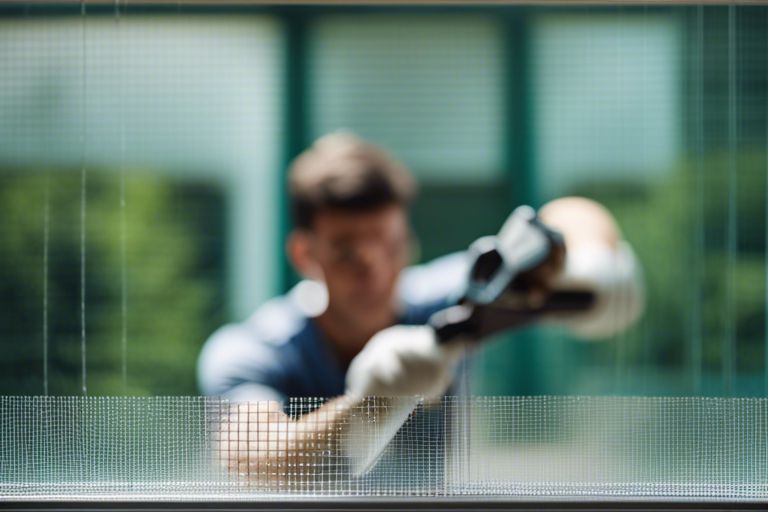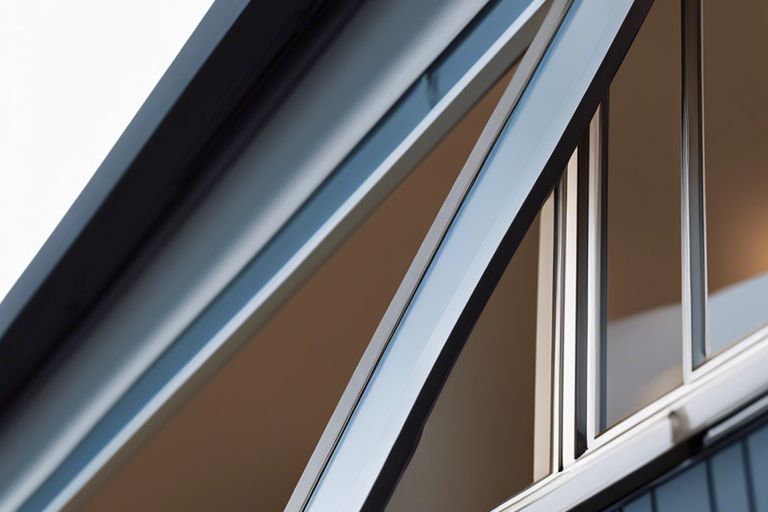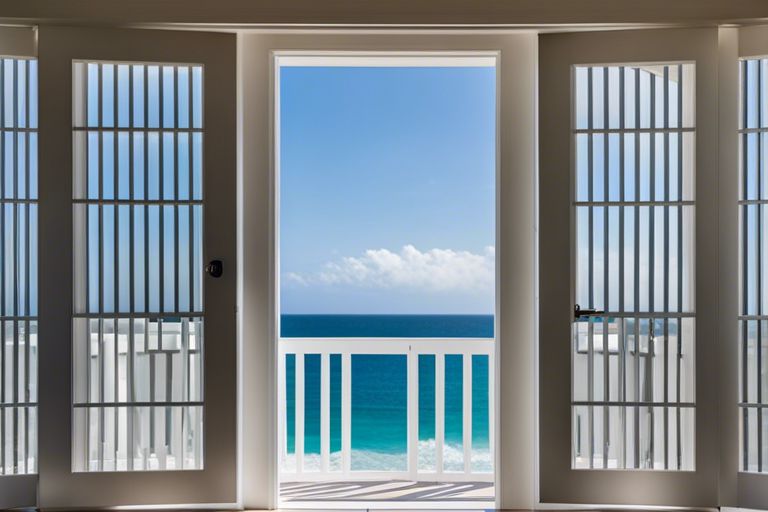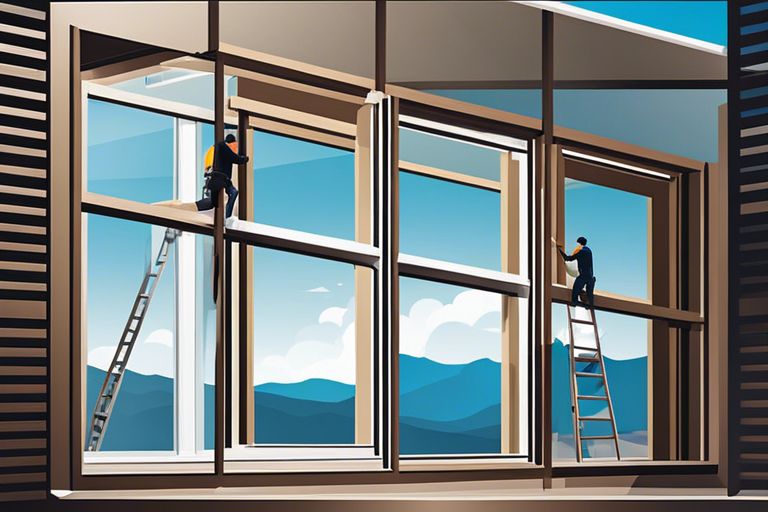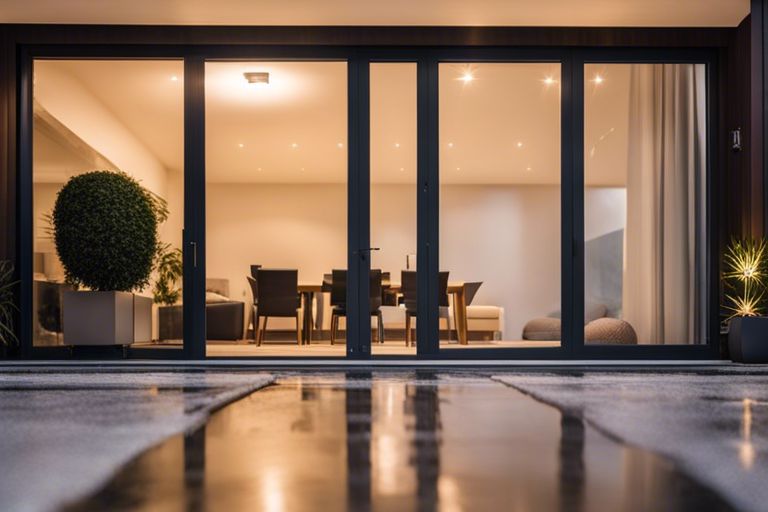When it comes to investing in new doors for your home, it’s essential to consider the durability and longevity of different materials. You want to make sure that your doors will stand the test of time and provide you with security and peace of mind. Aluminium doors are an excellent choice for this, as they offer exceptional strength and resistance to the elements. Unlike wood, which can warp and rot, or steel, which can rust and corrode, aluminium doors are virtually immune to these issues. In addition, they require minimal maintenance, making them a practical and reliable option for your home. In this guide, we will explore the benefits of choosing aluminium doors over other materials, and why they are a wise investment for any homeowner.
Key Takeaways:
- Aluminium doors are incredibly durable and long-lasting, outperforming many other materials in terms of longevity.
- They are resistant to rust and corrosion, making them ideal for various weather conditions and climates.
- Aluminium doors require minimal maintenance compared to other materials such as wood or steel, reducing the overall cost of ownership.
- Despite their lightweight nature, aluminium doors are remarkably strong and provide excellent security for homes and businesses.
- Aluminium is a sustainable material, making aluminium doors an eco-friendly choice for environmentally conscious consumers.
- They offer great insulation properties, helping to regulate temperature and reduce energy costs in buildings.
- With their sleek and modern appearance, aluminium doors can add aesthetic value to any property, complementing various architectural styles.
Types of Door Materials
One of the key decisions when choosing a door for your home is the material it is made of. There are several options available, each with its own set of benefits and drawbacks. Here is a breakdown of the most common types of door materials:
| Material | Durability |
| Aluminium | High |
| Wood | Variable |
| Steel | High |
| Fiberglass | High |
Aluminium Doors
When it comes to durability and longevity, aluminium doors are an excellent choice. They are known for their resilience to corrosion, making them ideal for damp or coastal environments. Additionally, aluminium is a lightweight material, which makes it easier to install and less prone to warping or sagging over time.
Wood Doors
Wood doors have been a popular choice for centuries due to their classic, natural look. However, they require more maintenance to keep them in top condition, as they are susceptible to rot, warping, and insect damage. If you are willing to invest the time and effort, wood doors can still be a beautiful and durable option for your home.
Steel Doors
Steel doors are known for their strength and security. They are resistant to fire and provide excellent insulation. However, they are susceptible to rust if not properly maintained, and they can be dented or scratched, requiring touch-ups to maintain their appearance.
Fiberglass Doors
Fiberglass doors are a low-maintenance option that can mimic the look of wood or steel. They are resistant to dents, scratches, and corrosion, making them an attractive and durable choice for many homeowners. Additionally, fiberglass doors offer excellent insulation, which can help reduce energy costs.
Comparison Summary
When comparing the durability and longevity of different door materials, aluminium stands out for its resistance to corrosion and overall resilience. While wood doors have a timeless appeal, they require more maintenance to ensure their longevity. Steel doors provide excellent security but need regular maintenance to prevent rust. Fiberglass doors offer a low-maintenance and durable alternative, with the added benefit of energy efficiency.
| Material | Durability |
| Aluminium | High |
| Wood | Variable |
| Steel | High |
| Fiberglass | High |
Factors Affecting Durability and Longevity
Not all aluminium doors are created equal, and several factors can affect their durability and longevity. Here are some key considerations to keep in mind:
- Quality of Material: The quality of the aluminium used in the construction of the door greatly impacts its durability. High-grade aluminium is much more resistant to corrosion and weather damage.
- Installation: Proper installation is crucial for the longevity of your aluminium door. Poor installation can lead to problems such as misalignment and decreased structural integrity.
- Environmental Factors: Exposure to extreme weather conditions, such as high humidity and saltwater air, can accelerate wear and tear on aluminium doors.
- Maintenance: Regular maintenance is essential to extend the lifespan of your aluminium door. Neglecting maintenance can result in premature deterioration and functional issues.
Any of these factors can significantly impact the durability and longevity of your aluminium door, so it’s important to consider them carefully when making your selection.
Environmental Considerations
When it comes to the durability and longevity of aluminium doors, environmental factors play a significant role. Exposure to harsh weather conditions, such as heavy rain, extreme heat, or salty coastal air, can accelerate corrosion and wear on your door. It’s important to consider the climate and environmental conditions in your area and choose an aluminium door that is specifically designed to withstand these challenges.
Maintenance and Upkeep
Proper maintenance and upkeep are essential for ensuring the long-term durability of your aluminium door. Regular cleaning and lubrication of moving parts, such as hinges and locks, can prevent corrosion and ensure smooth operation. Additionally, inspecting the door for any signs of damage and addressing them promptly can help extend its lifespan.
Usage Patterns
Your usage patterns can also impact the durability and longevity of your aluminium door. High-traffic areas or heavy use of the door, especially in commercial settings, can cause accelerated wear and tear. Consider the frequency of use and potential impact on the door when choosing the right aluminium door for your needs.
Step-by-Step Guide to Maintaining Your Doors
To ensure the longevity and durability of your aluminium doors, it is essential to properly maintain them. Below is a step-by-step guide to help you keep your doors in top condition.
| Step 1: | Clean the doors with a mild detergent and water, using a soft cloth or sponge. |
| Step 2: | Inspect the door frame and hinges for any signs of wear or damage, and lubricate any moving parts with a silicone-based lubricant. |
| Step 3: | Check the weather-stripping and seals for any cracks or gaps, and replace them if necessary to maintain a tight seal. |
Routine Maintenance Tips for Aluminium Doors
When it comes to maintaining your aluminium doors, regular upkeep is key to ensuring their longevity. Here are some routine maintenance tips to keep in mind:
- Regularly clean the doors with a mild detergent to remove dirt and grime.
- Inspect the weather-stripping and seals for any signs of wear and tear.
- Lubricate the hinges and moving parts to prevent friction and rust.
The proper routine maintenance of your aluminium doors will ensure they remain in optimal condition for years to come.
Preventative Measures to Enhance Longevity
To further enhance the longevity of your aluminium doors, there are certain preventative measures you can take.
Regularly inspect the doors for any signs of damage and address them promptly. Additionally, consider applying a protective coating to the aluminium surface to prevent corrosion and maintain the aesthetic appeal of the doors.
Pros and Cons of Aluminium Doors
Keep in mind that aluminium doors have their own set of advantages and disadvantages. Let’s take a look at the pros and cons of aluminium doors in comparison to other materials:
| Pros | Cons |
| High durability | Can be more expensive than other materials |
| Low maintenance | Not as good at insulating against heat and cold |
| Lightweight | Prone to dents and scratches |
| Modern aesthetic | Less variety in design options compared to other materials |
| Resistant to corrosion | Limited color options |
| Environmentally friendly | May require professional installation |
| Long lifespan | Can conduct heat, affecting energy efficiency |
| Recyclable | Not as soundproof as other materials |
| Excellent security features | Can have higher upfront costs |
| Weather-resistant | Limited customization options |
Advantages of Aluminium Doors
Aluminium doors offer several advantages that make them an attractive option for your home. Firstly, they are highly durable, ensuring that they will last for many years. In addition, their low maintenance requirements mean that you won’t have to spend as much time and effort on upkeep. The lightweight nature of aluminium makes it easy to install, while the modern aesthetic adds a contemporary feel to your home.
Disadvantages of Aluminium Doors
Despite their many benefits, aluminium doors also come with a few drawbacks. One of the main concerns is their limited ability to insulate against heat and cold, which can impact your energy efficiency. They are also prone to dents and scratches, and may have fewer design options compared to other materials.
How Aluminium Stacks Up Against Other Materials
When comparing aluminium doors to other materials such as wood, steel, or fiberglass, it’s important to consider the unique features of each. While aluminium offers high durability and low maintenance, it may not provide the same level of insulation as other materials. However, its modern aesthetic and excellent security features make it a strong contender in the door material market.
Concluding the Superiority of Aluminium Doors
Ultimately, when considering the durability and longevity of doors, aluminium stands out as a superior material compared to other options. Aluminium doors are highly resistant to corrosion, weathering, and warping, making them ideal for long-term use and low maintenance. When you choose aluminium doors, you are investing in a product that will withstand the test of time, saving you money on replacements and repairs in the long run. If you want to learn more about the advantages of aluminium doors, you can find more information here.
FAQ
Q: What is the durability of aluminium doors compared to other materials?
A: Aluminium doors are highly durable and resistant to rust, corrosion, and weathering, making them more long-lasting compared to other door materials such as wood or uPVC.
Q: How does the longevity of aluminium doors compare to other materials?
A: Aluminium doors have a significantly longer lifespan than other materials. With proper maintenance, they can last for decades without deteriorating in performance or appearance.
Q: Are aluminium doors prone to dents or damage?
A: Aluminium doors are renowned for their strength and resilience against dents and damage. They can withstand impacts better than uPVC or wooden doors, making them an ideal choice for high-traffic areas.
Q: Can aluminium doors withstand harsh weather conditions?
A: Yes, aluminium doors are highly resistant to harsh weather conditions such as extreme heat, cold, rain, and humidity. They do not warp, rot, or swell like wooden doors, making them ideal for outdoor usage.
Q: How do aluminium doors compare in terms of maintenance?
A: Aluminium doors require minimal maintenance compared to other materials. They do not need to be repainted or resealed regularly and can be easily cleaned with a simple wipe-down, making them a cost-effective choice in the long run.
Q: Are aluminium doors environmentally friendly?
A: Yes, aluminium is a highly sustainable and recyclable material. Choosing aluminium doors contributes to environmental conservation as they can be recycled at the end of their lifespan, reducing the need for new raw materials.
Q: Are there any drawbacks to choosing aluminium doors over other materials?
A: The main drawback of aluminium doors is their higher initial cost compared to uPVC or wooden doors. However, considering their durability, longevity, and low maintenance requirements, the long-term benefits outweigh the initial investment.

